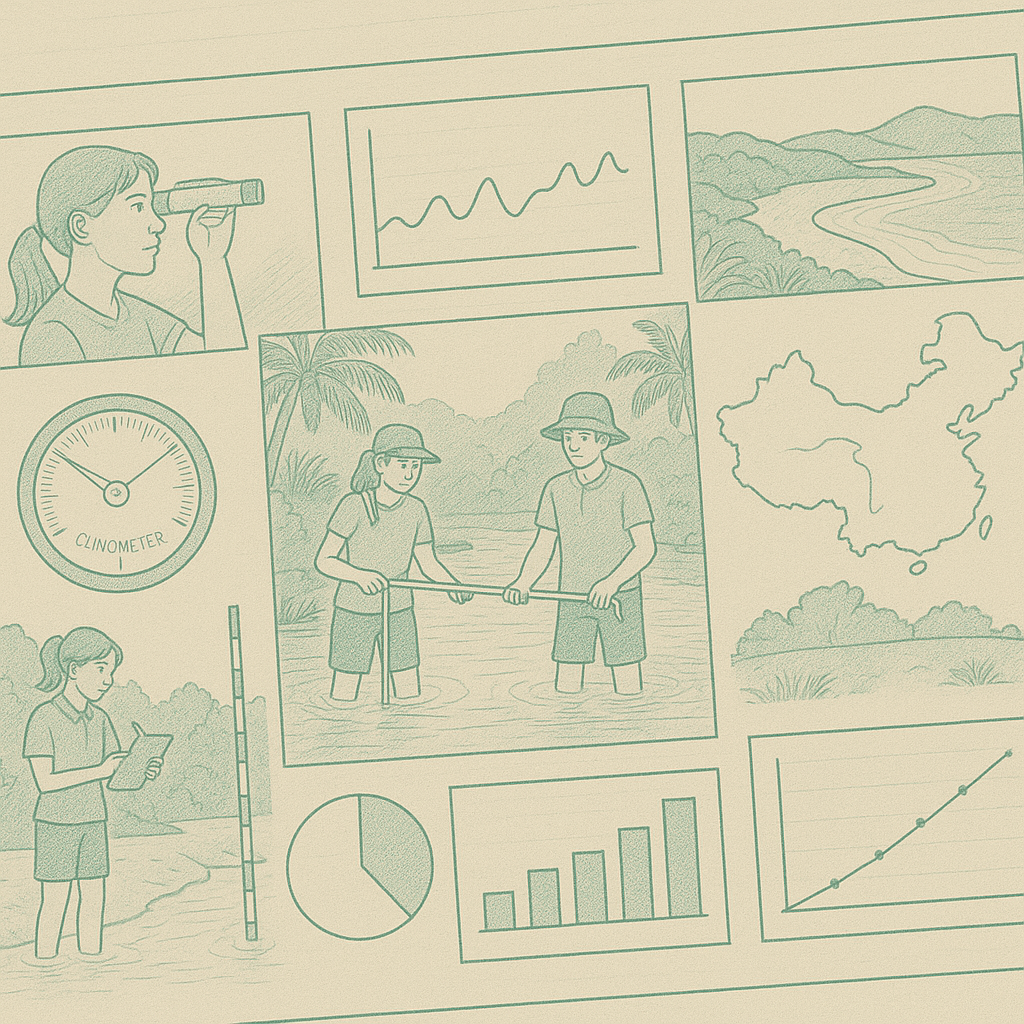What are Geography past papers?
Past papers are simply previous years’ exam questions, exactly as students sat them.
For Geography, they usually come as a question paper and an insert.
That insert is really important—it often contains maps, graphs, charts, infographics, or photos that you’ll need to interpret and analyse.
Alongside the paper, you can usually find a mark scheme (which shows what examiners credited) and sometimes an examiner’s report (which explains what students did well or struggled with that year).
Together, they give you an authentic practice experience and show how the exam really works.
Think of it like sports: you can train endlessly, but at some point, you need to play proper matches. Past papers let you “play” under exam conditions.
Are Geography past papers actually worth it?
Short answer: yes – but don’t be fooled into thinking they’re all you need.
Past papers help you:
- Practise with real exam-style questions.
- Get used to command words like explain, evaluate, and to what extent. (Tip: exam boards often include a glossary of command terms at the back of the syllabus guide—worth checking!)
- Train for timing and stamina.
- Apply your knowledge, not just memorise it.
BUT: don’t rely on spotting patterns. Some students think “Topic X always comes up in Paper 2.” Wrong. Exam boards deliberately vary questions, and second-guessing wastes precious revision time.
I definitely recommend past papers because…
- They build confidence – you know what to expect.
- They show your weak spots quickly.
- They help you practise structuring answers, especially essays and case studies.
Most importantly: marking. Doing a paper is only half the job. Marking it is where you actually learn. Ideally, get a teacher or tutor to look at your answers. Mark schemes sometimes make it look like a single word earns a mark, when in reality it’s your explanation that matters. That difference is easy to miss if you self-mark.
Also beware of Geography past papers
- False sense of security: recognising a question is not the same as being able to answer it well under pressure.
- Mark scheme trap: don’t panic if your exact wording isn’t there. The schemes reflect common answers, but good alternative responses are also credited.
- Over-reliance: if you only do past papers, you’ll miss out on revision techniques like mind mapping, flashcards, or spaced repetition, which strengthen long-term memory in ways past papers don’t.
Years when the Geography curriculum has changed
Not every past paper is relevant. Be careful:
- IBDP Geography: new syllabus first examined in 2019. Older papers don’t match the current structure.
- Cambridge IGCSE Geography (0460): a new syllabus is coming for first exam in 2027. Until then, older papers are still valid, but keep an eye out for changes.
- Other boards (Edexcel, AQA, OCR): update syllabuses every few years. Always check the spec you’re studying.
When syllabuses change, look for specimen papers—they’re the best guide to the new format.
Where to get Geography past papers from
- IB: tricky. Schools usually buy them from the IB store or access them via IB QuestionBank. Teachers can share them, but students rarely find them online legitimately.
- Cambridge (CAIE): official Past Papers Portal.
- Pearson Edexcel / AQA / OCR: free on their websites.
- Third-party sites: SaveMyExams, PapaCambridge, XtremePapers, Revision World. (Use with caution—sometimes they’re incomplete or labelled incorrectly.)
Avoid random “free PDF” download sites—they often host outdated versions or poor scans.
How to read the codes on past Geography papers
Cambridge paper codes can look a bit baffling at first, but once you know the parts they’re easy to read. For example: 0460/12/M/J/22
- 0460 = the syllabus code (IGCSE Geography).
- 12 = the component code (two digits). Important: when the component code has two digits the first digit is the paper number from the syllabus (e.g. Paper 1) and the second digit identifies the component variant/location — i.e. the administrative zone or time-zone variant used to manage exam security and timetabling. So 11, 12, 13 are all Paper 1 variants for different locations/zones.
- M/J = the series/session (May/June). You may also see O/N for October/November (or other series indicators).
- 22 = the year (2022).
So 0460/12/M/J/22 reads as IGCSE Geography, Paper 1 — Variant 2 (location/zone 2), May/June 2022.
Practical tips:
- If you’re picking papers to use as mocks, choose components that share the same final digit (e.g. 12, 32, 62) so you’re using consistent variants across different papers — that’s what many centres recommend.
- Cambridge publishes administrative zones (Zone 1–6). Check which zone your centre/country sits in so you know which variant you should be practising with.
- When you download digital files you’ll often see filenames like 0460_s22_qp_12.pdf or 0417_s22_ms_11.pdf — the s22 (summer 2022) (or w24 – winter 2024) marks the series/year and qp/ms tells you whether it’s the question paper or mark scheme. That’s handy when you’re sorting files.
Common FAQs about past Geography papers from students
Can you just revise from past papers?
They’re excellent for active recall and applying knowledge. The downside: they don’t target the specific gaps in your knowledge. On the plus side, doing a past paper might reveal what you don’t know.
How many past papers should I do?
How long is a piece of string? As many as you have time for. As a guide:
- For IGCSE Geography: aim for around 5 full papers per exam component (e.g., 5 Paper 1s, 5 Paper 2s, 5 Paper 3s).
- For IBDP Geography: don’t waste all your time writing full essays. Instead, plan lots of essays quickly—it forces you to recall case studies and structure arguments without spending 45 minutes on each. Do write some in full, though, to practise timing.
Are past papers the best revision method?
They’re one of the best for applying understanding under exam conditions. But they don’t use spaced repetition, which is excellent for memory, or techniques like flashcards and mind maps. In short: past papers are brilliant, but combine them with other strategies.
Final thoughts: Are past papers worth it?
Past papers are absolutely worth it – but they’re not a shortcut.
Use them to apply, test, and practise, but don’t forget the content revision and other study techniques that make them most effective.
👉 Want more revision advice, Geography resources, and exam tips?
Explore my other blogs, check out my YouTube channel, or book a free 30-minute support session.



